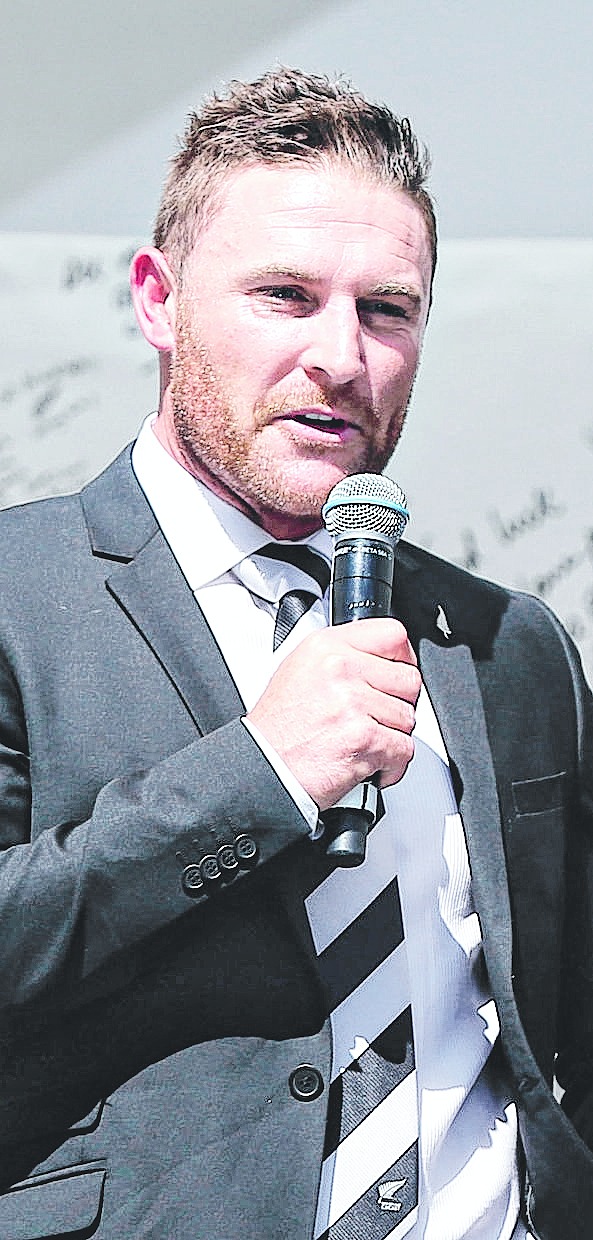
Calcutta: Former New Zealand captain Brendon McCullum has tore into the International Cricket Council (ICC) blaming the game's apex body of being "casual" in handling the alleged match-fixing case involving Chris Cairns. McCullum, who gave evidence against his one-time teammate Cairns at the Southwark Crown Court last year, said that the episode shook his faith in the world body.
McCullum used the MCC Spirit of Cricket lecture to come out with his criticism of the approach of the ICC's anti-corruption unit.
Speaking at the Lord's, McCullum stood by the evidence he gave at the trial, but condemned his first interview with a member of the ICC's anti-corruption unit as "casual".
"Cairns, my former hero, approached me to fix matches in 2008; once in Kolkata when I was playing in the IPL for the first time, and again during the New Zealand tour of England when we were in Worcester.
"At the outset, I think it is appropriate, standing here at the 'Home of Cricket', to confirm that I stand by everything said in my statements and the evidence I gave at the Southwark Crown Court," McCullum said.
"In any case, before the New Zealand team's first game in the World Cup of 2011, John Rhodes, a representative of the ICC's anti-corruption unit, addressed us. He told us that if we had been, or were, approached about match-fixing and we did not report it then we were, in the eyes of the ICC, just as guilty as the person who approached us. I had told other people about Cairns' approaches - one of them was my captain and friend, Dan Vettori," he added.
McCullum said he was surprised at the way his revelations were handled by Rhodes.
"After John Rhodes, completed his address I approached Dan and we went and saw Rhodes, telling him I had something to share with him. Rhodes took us to his hotel room where I detailed the approaches made by Cairns. Rhodes took notes - he did not record our conversation. He said he would get what I said down on paper and that it would probably end up at the bottom of the file with nothing eventuating.
"Looking back on this, I am very surprised by what I perceive to be a very casual approach to gathering evidence. I was reporting two approaches by a former international star of the game," McCullum said.
For the record, Cairns was cleared of any involvement in match-fixing at the end of a nine-week trial in November.
McCullum quit the game quite suddenly and surprisingly earlier this year. The Telegraph, in a report on May 9, had said that the way McCullum bid goodbye to the game, it threw open the question whether Cairns' acquittal in the perjury trial had influenced his decision. And now, from what McCullum said at the Lord's on Monday, it is evident that the whole Cairns episode had left a bitter taste in him.
McCullum also detailed his experience of presenting evidence in a court of law.
"Needless to say, by the time I sat in the witness box in London in October 2015, I had made three statements in relation to the issues.
"The second statement was requested by the ICC's anti-corruption unit much later on - a clear indication that my first statement was inadequate - but how on earth could I have known that. As a player I had reported an approach - and it was recorded sparsely by the person I reported to."
He went on to add: "I think players deserve better from the ICC and that, in the future, the evidence-gathering exercise has to be much more thorough, more professional.
"When I made my first statement to the ICC, my impression was that it would be put in the bottom draw and never see the light of day again. No attempt was made to illicit a full and comprehensive statement from me on that occasion."
Criticising the ICC for leaking his evidence, McCullum said: "I do wish that the ICC had handled my initial approach more professionally for the reasons I have given. No witness who has provided evidence to the ICC should ever have to go through such a scenario again. The leak has never been explained to me; to my knowledge no one has been held accountable and, in those circumstances, it is difficult to have confidence in the ICC."
"To report an approach and to give evidence requires considerable courage - players deserve much better. How can the game's governing body expect players to co-operate with it when it is then responsible for leaking confidential statements to the media?
"It goes without saying that if players do not have confidence in the organisation, they will be reluctant to report approaches and the game is worse off. If we are to get rid of the scourge of match-fixing, a robust governing body is essential."










